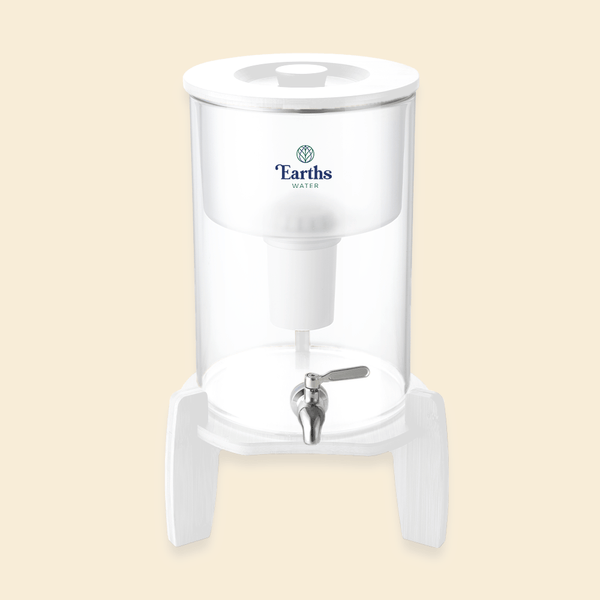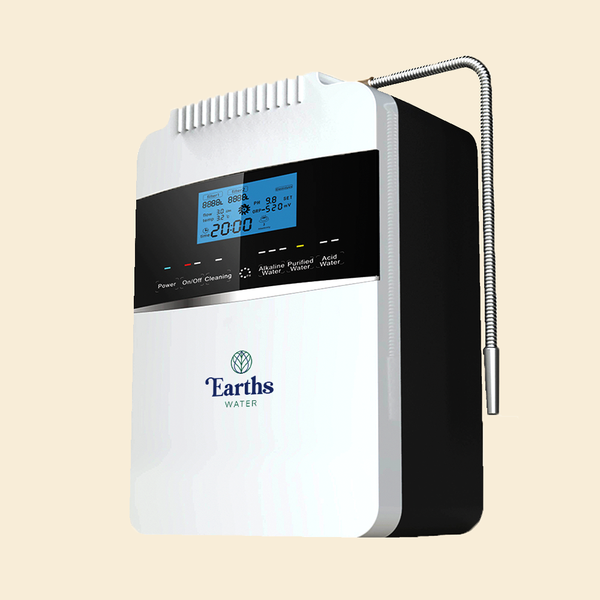
Have you ever considered the journey your drinking water takes before it reaches your glass? In a country like Australia, we're no strangers to water stress. We've weathered long droughts, sudden floods, and heatwaves that leave us clutching our reusable bottles a little tighter. Climate change has turned these challenges from rare events into regular headlines, reshaping our relationship with water.
Every choice we make—from the tap we turn on to the bottle we fill—shapes a story about how water impacts both our health and the planet. When that story includes single-use plastic bottles, it’s a tale of fossil fuels, shipping emissions, and landfill. But when the story shifts to filtered drinking water at home, it becomes a story of sustainability, healthier living, and a smaller climate footprint.
The Link Between Clean Water and Climate Change

While climate change can feel like an overwhelming global issue, it's deeply linked to our most essential resource: water.
-
Droughts and Scarcity: Longer dry periods put more pressure on rivers and reservoirs, making it harder to secure clean water.
-
Flooding and Pollution: Heavy rains can overwhelm water systems, carrying pesticides, heavy metals, and microplastics into our supplies.
-
Rising Temperatures: Hotter weather alters ecosystems, encourages harmful algal blooms, and even affects the way water tastes and smells.
Climate change is already shaping the quality of our water. And that’s precisely why sustainable water choices are so crucial. By rethinking how we filter, carry, and store water, we can help protect ourselves and reduce the strain on the planet.
Why Filtered Drinking Water Is a Climate-Friendly Habit
Grabbing a plastic bottle might feel easy, but its environmental impact is anything but light. Every stage, from production to transport to disposal, consumes vast amounts of resources and pumps out greenhouse gases.
Filtered drinking water at home, on the other hand, is one of the simplest ways to make a difference. With the right products, you can cut down plastic waste, shrink your carbon footprint, and still enjoy water that’s fresh, clean, and safe.
This isn't just a theory—it's a measurable change.
Cutting CO₂ Emissions with Every Filter
Here’s where it really adds up: switching to an Earths Water filter prevents around 58kg of CO₂ emissions in just three months or around 232kg of CO2 emissions in a year.
That’s the equivalent of:

It’s proof that climate action doesn’t always look like grand gestures; sometimes, it’s as simple as pouring a glass of filtered water at home.
Sustainable Water Choices from Earths Water

At Earths Water, our goal is simple: to make sustainability practical, beautiful, and part of daily life. Here's how our products help you make a difference:
3.5L Glass Carafe Water Filter
Made from borosilicate glass and topped with natural bamboo, the Glass Carafe is an elegant alternative to single-use bottles and plastic jugs. It sits beautifully on your table and makes hydrating feel like an intentional ritual rather than an afterthought.
9L Glass Benchtop Water Filter
For households that want a permanent, waste-free option, the Glass Benchtop Filter is a centrepiece that sits right on your bench. It’s not only about function but also about creating a daily reminder that clean water can be both sustainable and stylish.
Ultra Water Filter Bottle
Life doesn’t stop at the kitchen sink, and neither should clean water. The Ultra Water Filter Bottle is reusable, portable, and doubles as a filter—perfect for the gym, travel, or long commutes. It’s the kind of upgrade that quietly replaces dozens of single-use bottles over its lifetime.
Together, these options give you a way to stay hydrated while keeping climate concerns in check.
Bottled Water: The Cost We Don’t See
Australians spend over $700 million a year on bottled water. But the real cost isn’t at the checkout—it’s in the planet’s health. Plastic bottles take hundreds of years to break down, often ending up in oceans or rivers. Along the way, they release microplastics that have already been found in fish, sea salt, and even human blood.

By replacing bottled water with a Glass Carafe at home or an Ultra Water Filter Bottle on the go, you’re saving money, reducing pollution, and steering clear of unnecessary plastic exposure. It’s a small decision that spirals outward into lasting impact.
Building a Climate-Resilient Water Routine
Big issues like climate change can feel overwhelming, but lasting change starts with our daily habits. Here are some easy ways to align your water routine with sustainability:
-
Filter at the source: Use a benchtop or jug filter so you’re not tempted by bottled water.
-
Choose durable materials: Glass and bamboo over plastic—they last longer and look better.
-
Stay prepared on the go: Keep a reusable bottle handy so you’re never caught without clean water.
-
Turn it into a conversation: Talk to your kids about water and sustainability to build awareness for the next generation.
Every one of these steps is small, but stack them together and you’ve got a water routine that helps both your health and the climate.
Connecting Water Choices with Climate Action
Sustainable water choices aren’t about sacrifice—they’re about finding better alternatives. By swapping out bottled water for filtered, choosing glass over plastic, and cutting down CO₂ emissions with every filter, you’re showing that climate action can fit seamlessly into everyday life.
And if you’re curious to explore water from another angle, our blog on rainwater for drinking digs into the pros and cons of collecting from the sky. It’s all connected—climate, water, and the choices we make around them.
Water and Climate Change: It's All Connected

Water is at the heart of life, and at the heart of climate change. While the challenges can feel big, the solutions can be refreshingly simple. With Earths Water’s range of reliable and advanced water filters, you’re not just keeping yourself hydrated. You’re also protecting the planet, cutting down CO₂ emissions, and reducing plastic waste.
Because in a changing climate, every drop—and every choice—matters.









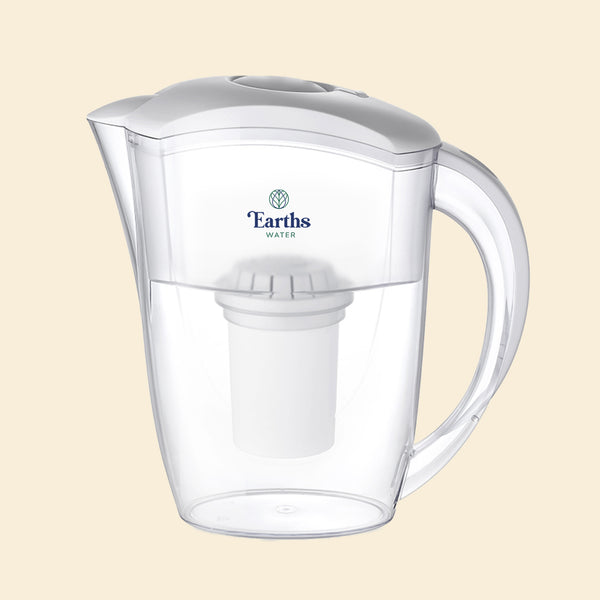
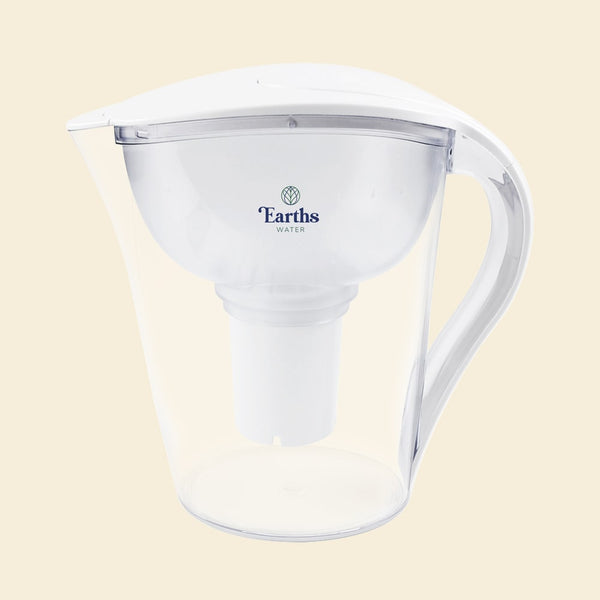
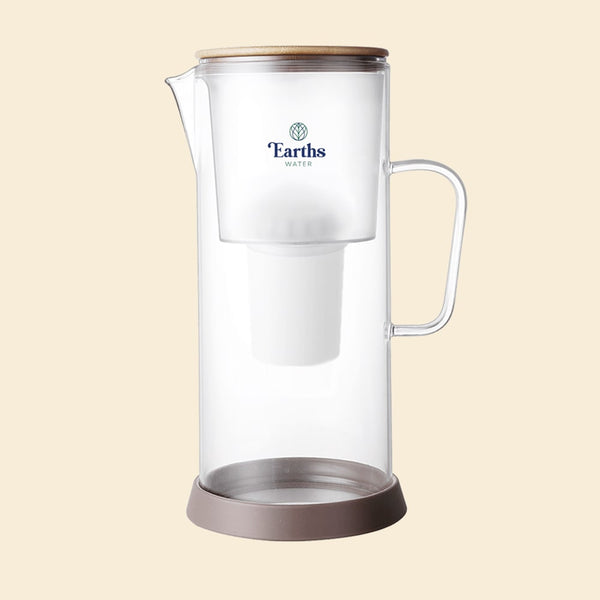
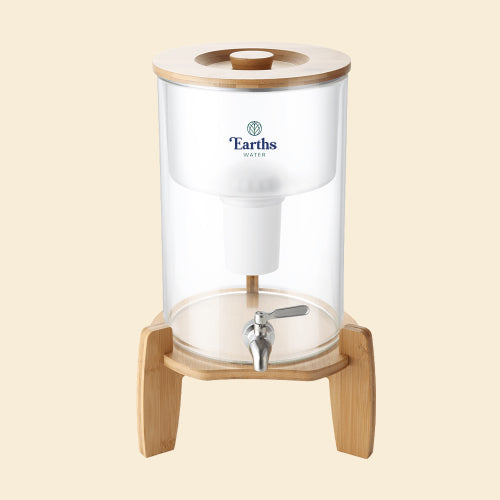
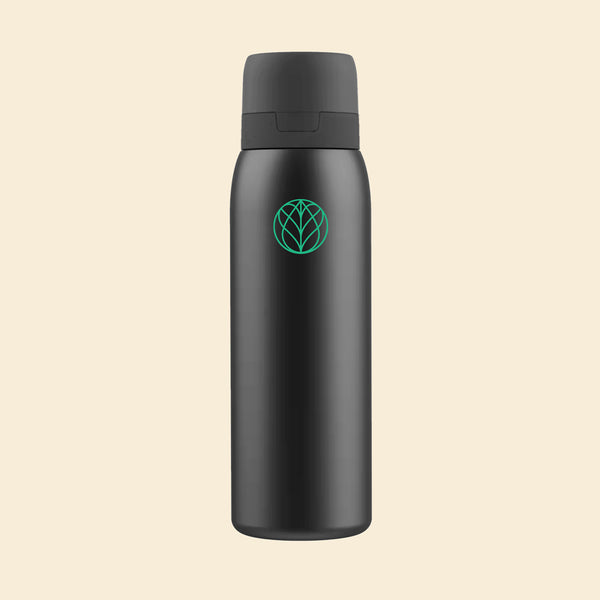
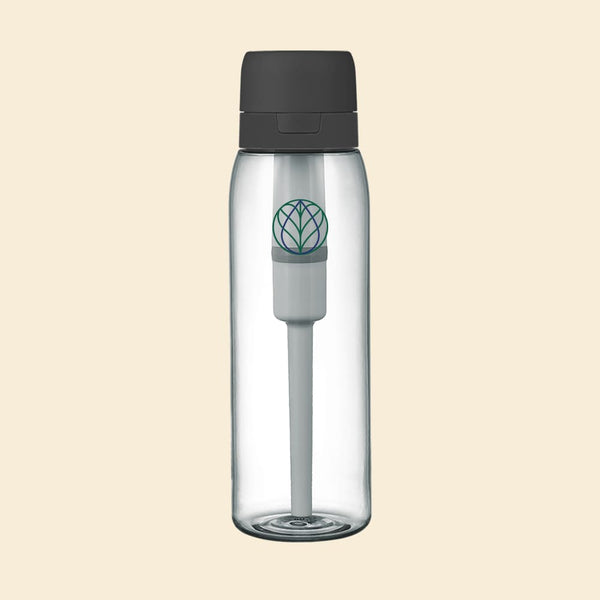
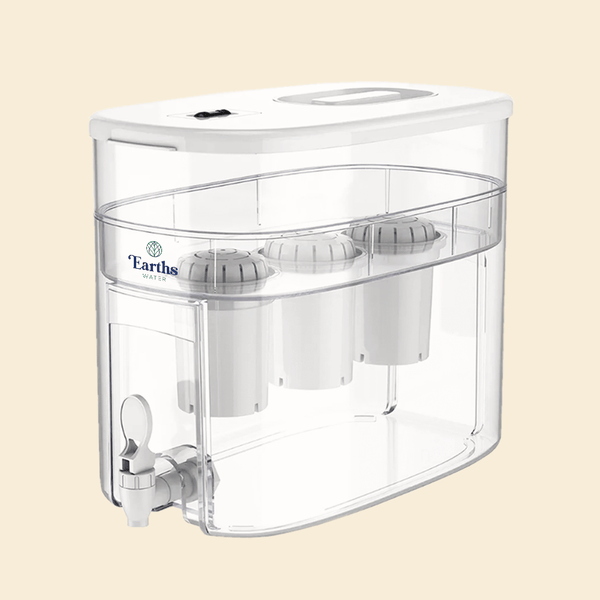
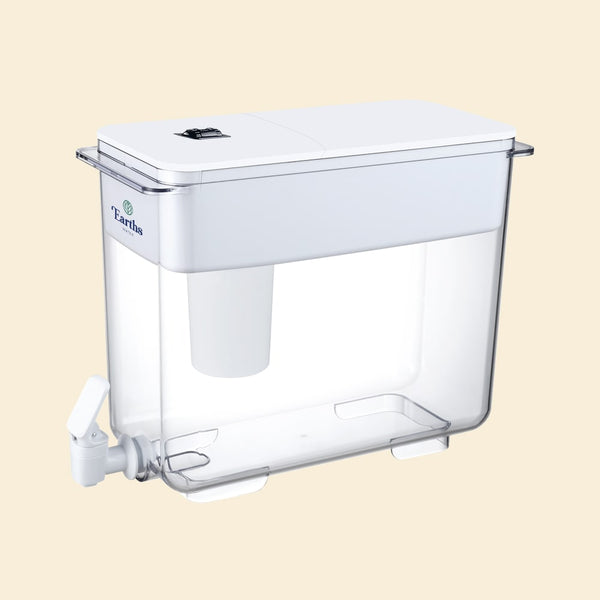
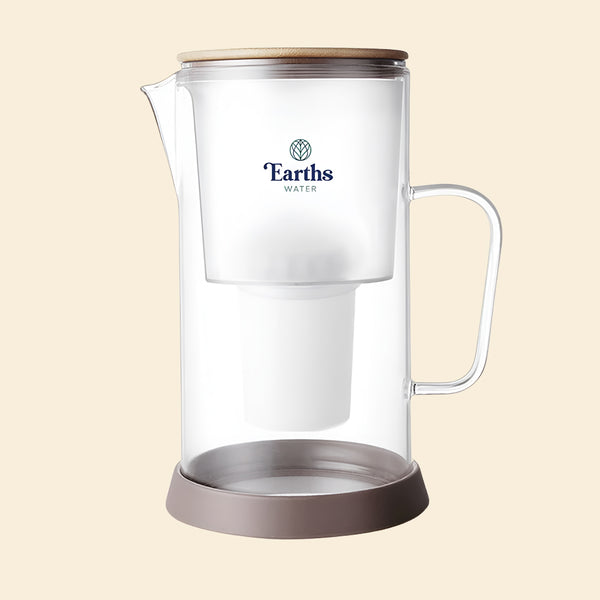
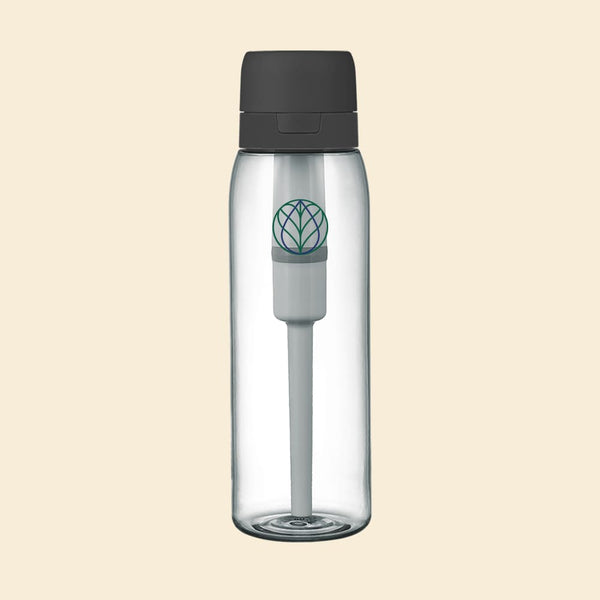
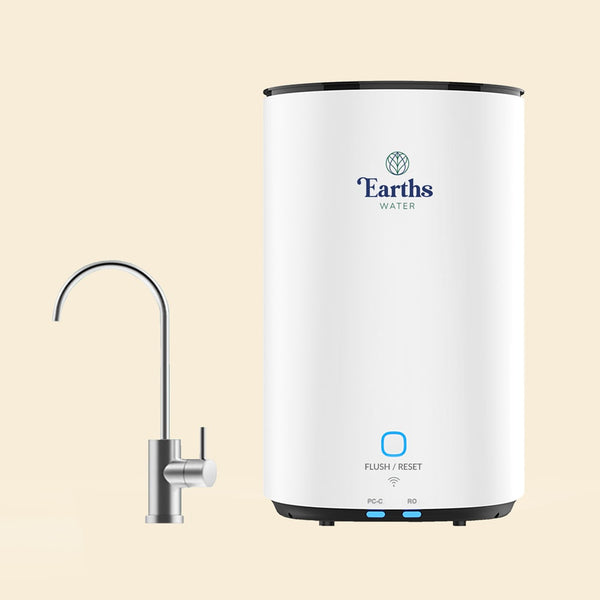
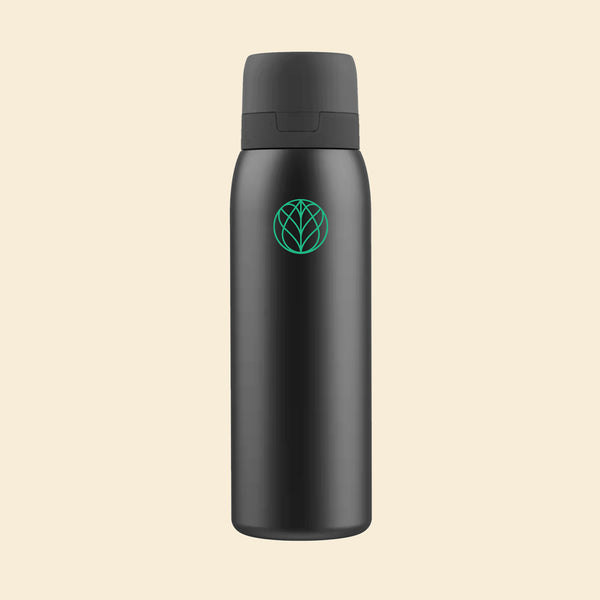
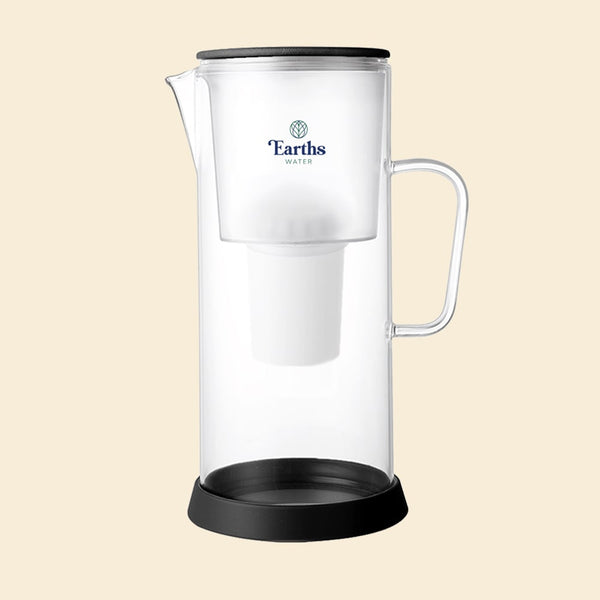
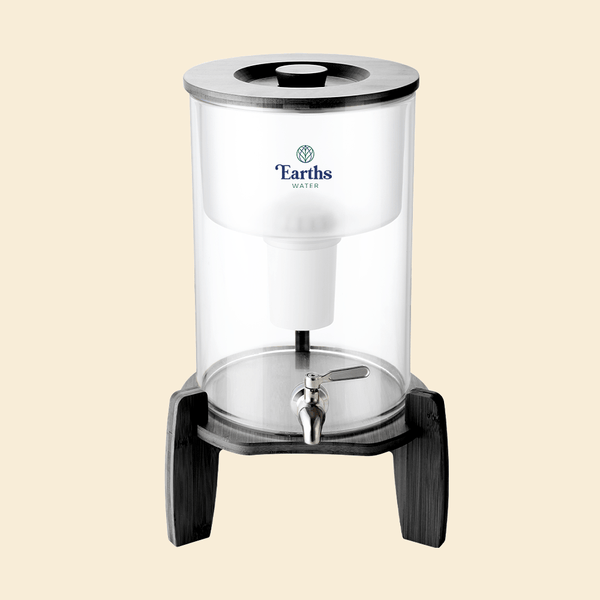
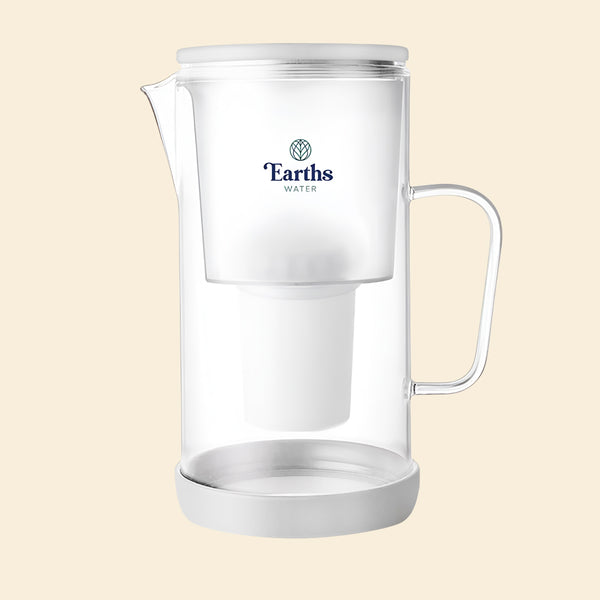
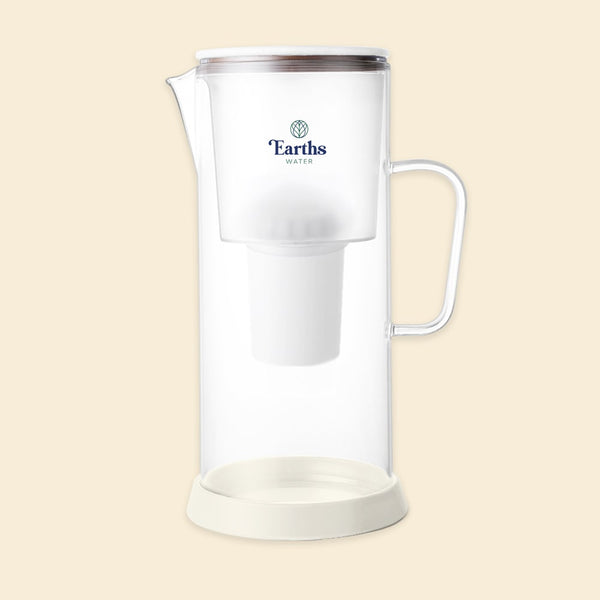
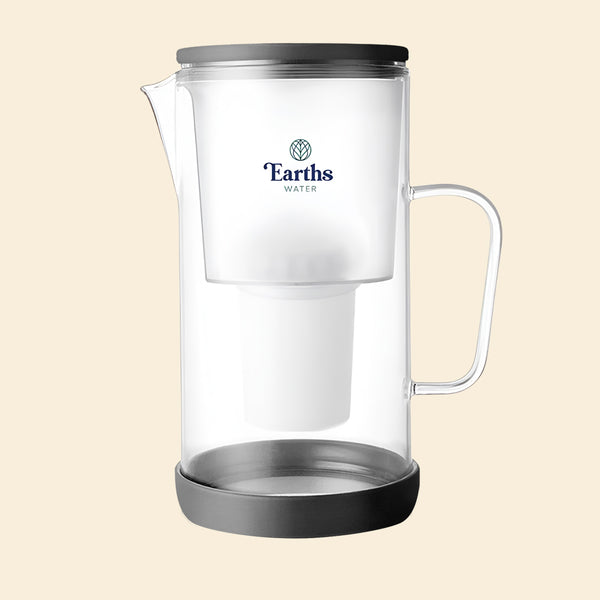
![9L Glass Benchtop Alkaline Water Filter - Eco Acacia [LIMITED EDITION]](http://earthswater.com/cdn/shop/files/ACACIA-BENCHTOP-FRONT-BEIGE_600x600.png?v=1743392740)
